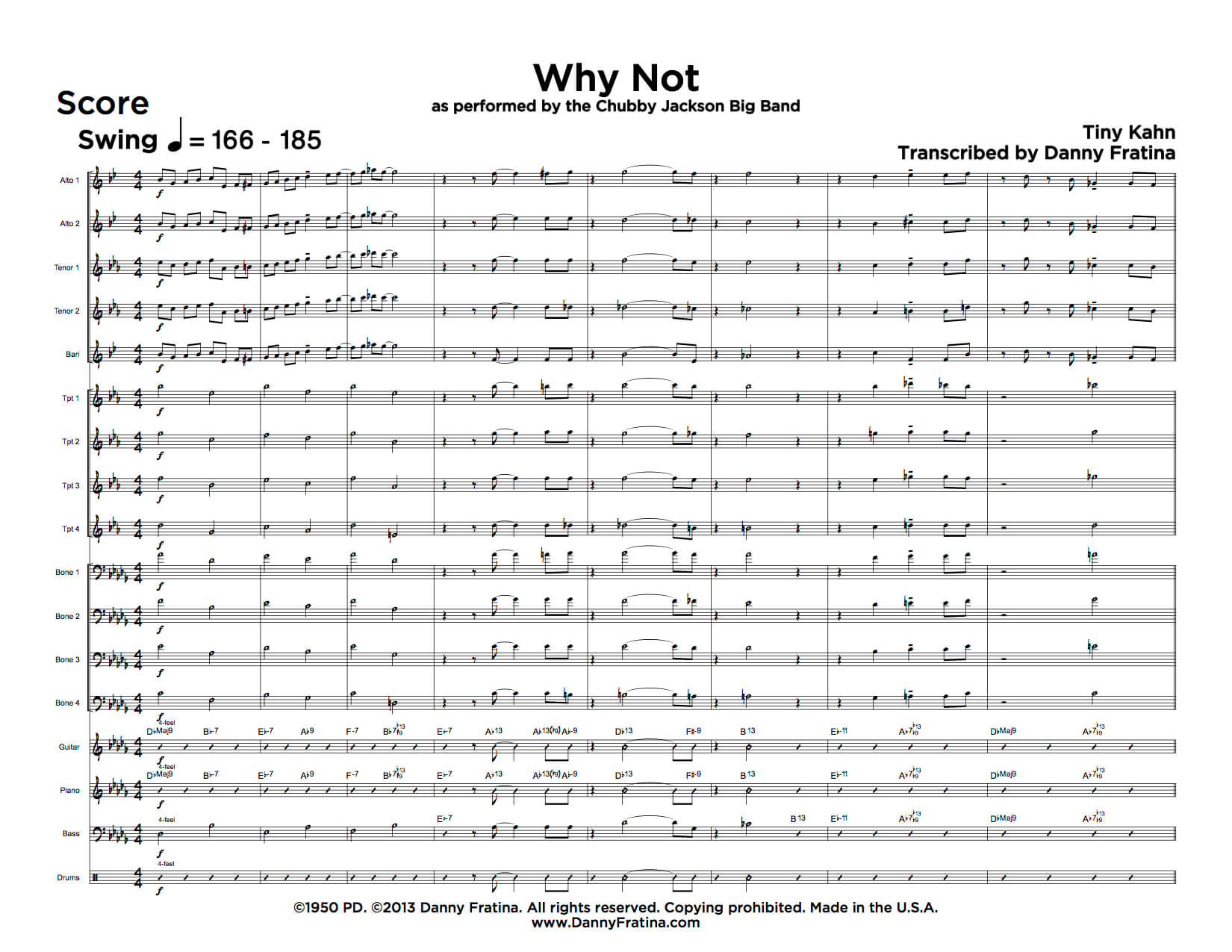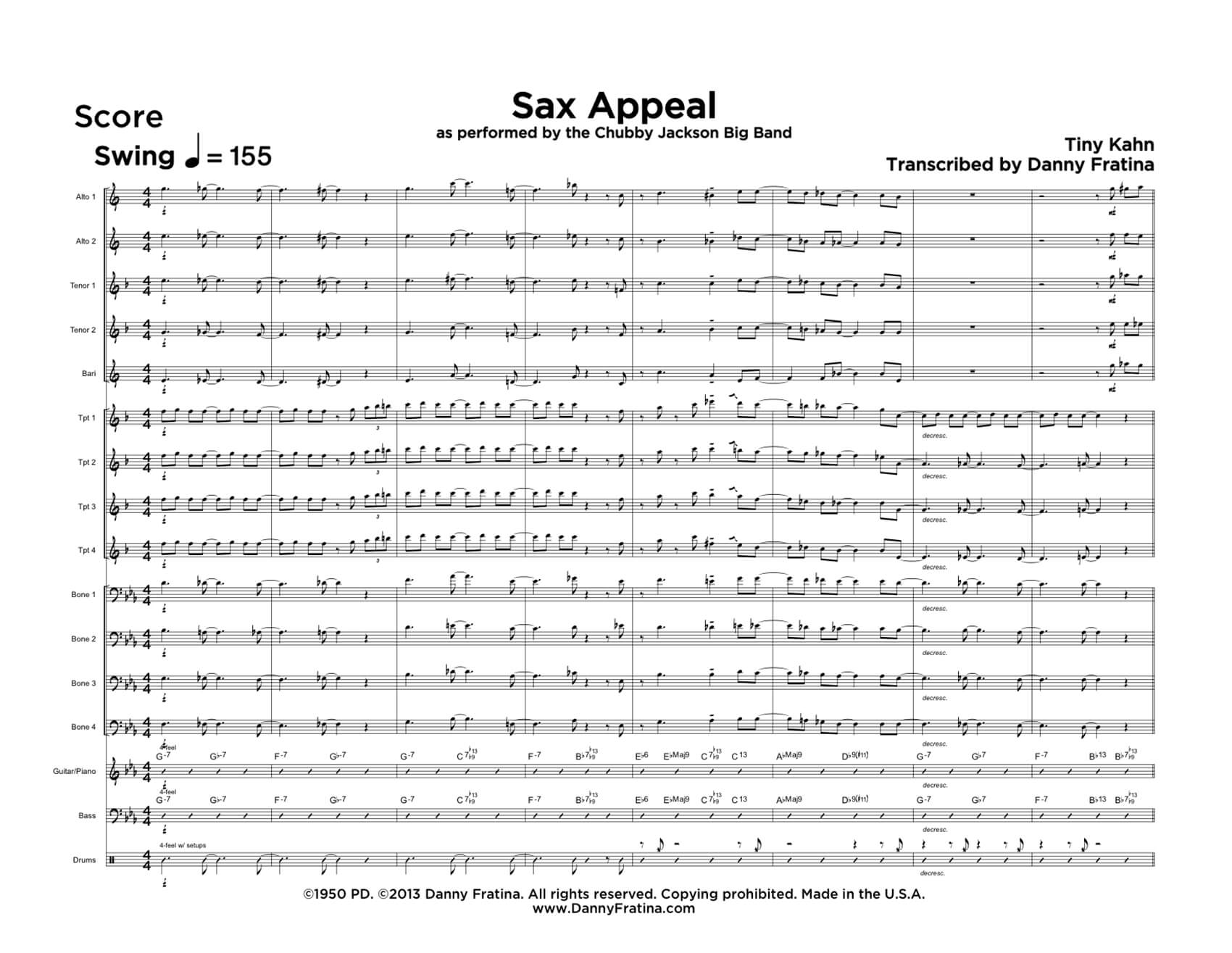Earlier this summer I sat down to transcribe a wishlist tune I had discovered on my favorite Youtube account, a tune called “Flying the Coop,” recorded by Chubby Jackson’s band in 1950. I soon picked up a full album of Jackson’s band and proceeded to get all of the recordings down on paper. The music is colorful, aggressive, and hard-swinging, and once I started on Flying the Coop, it was all too easy to keep going until I had the full album on my desk.
Along the way I was able to discover Tiny Kahn, the fantastic arranger on four of the tracks on the album, which I have up for sale now.
Tiny Kahn was born in 1923 or ‘24, the world doesn’t seem to be sure of which year. He died in 1953, no older than 30. He was self-taught on drums, piano, and vibraphone. He was self-taught as a composer and arranger. He was an overwhelmingly sensitive and positive person and his untimely death shocked and saddened a great many musicians around the world. He was a clean living guy, avoiding drugs and drinking (a difficult task in those days), but he had a weight problem. His nickname “Tiny” came from the fact that he weighed over 300 pounds, and at one point over 400. He died of a heart attack. Had he lived longer, he would have surely been one of The Cats we’d all be studying today. Instead, with his body of work so relatively small, we can only find bits and pieces of his career to sort out, examine, and marvel at.
Many fans of Tiny will tell you that he influenced Mel Lewis. This is possibly true, however, Mel Lewis himself is on record acknowledging this “fact” but insisting that him and Tiny both played the way they did before hearing each other. You can hear his thoughts on Tiny and his analysis of his playing in the essential History of Jazz Drums series of radio interviews.
If you don’t believe Mel, then we can say that Mel Lewis was influenced by Tiny Kahn and move on. We would be accepting that in the lineage of big band drummers, with Mel Lewis as the quintessential post-swing era drummer, Tiny Kahn is worth listening to in the way that Roy Eldridge is important in the development of Dizzy Gillespie’s approach.
What if we take Mel’s word on it though? Does that diminish the work of Kahn? I don’t think so – If Mel and Tiny had similar approaches, and Mel is considered to be the perfect big band drummer (I do, at least!), then isn’t Tiny as well? Which means that regardless of the relationship between the two players don’t we have to accept that Tiny is then worth listening to? I think so, especially with Mel acknowledging Kahn’s talent and similarities. There are scant few recordings of Tiny playing drums, but the talent is easy to recognize.
Tiny played with Lester Young, Stan Getz, Charlie Barnett, and many other rising stars of the West Coast jazz scene in the late 40s and early 50s.
There are already a few good articles and resources out there that talk about Tiny Kahn’s drumming, linked below. There is nothing new I can say about him and his drumming that hasn’t been said already by the masters like Mel Lewis, Terry Gibbs and Chubby Jackson. Stay tuned for a followup about his writing and arranging!
Tiny Kahn: Over 300 But Less Than 30


